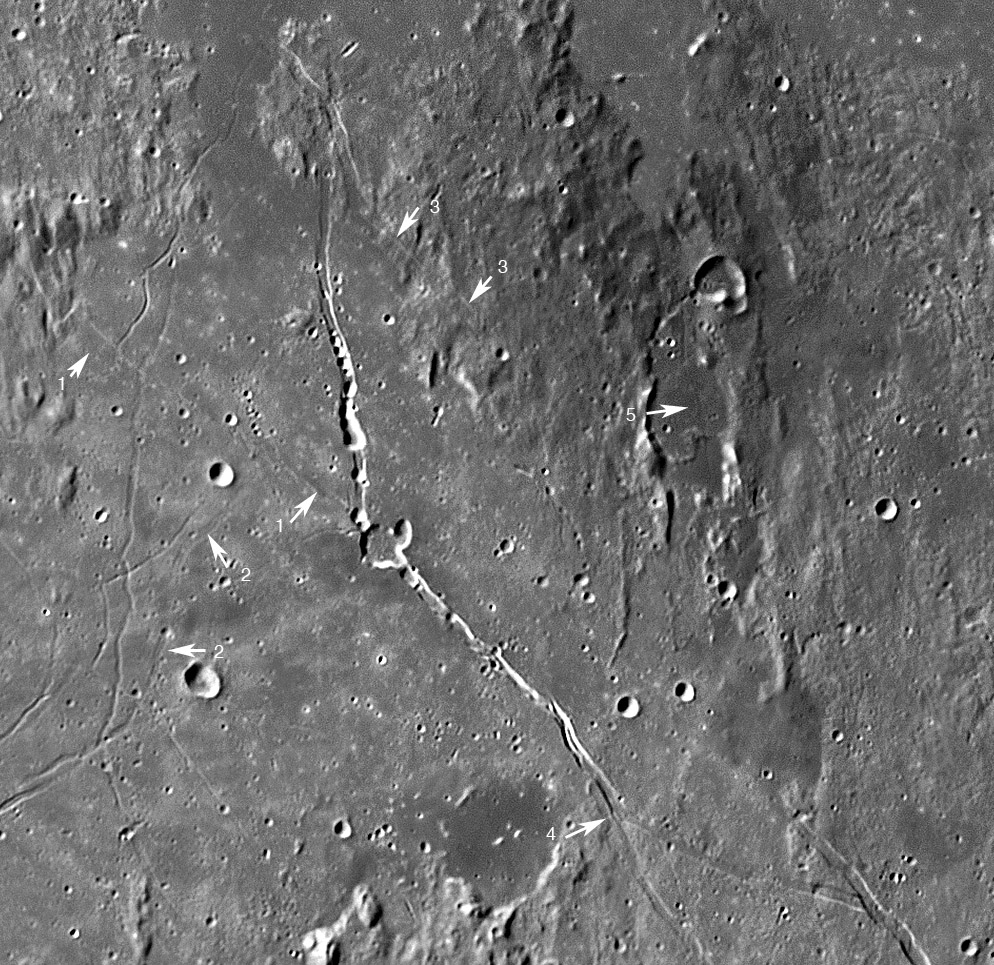
image by Wes Higgins
Last month, François Emond captured an amazing image of the Triesnecker and Hyginus rilles, revealing subtle features. Now Wes has imaged the area under a higher Sun, throwing more light on the rilles, and detecting some little known ones. “Little known” are weasel words for “these may be new discoveries, but I’m not sure”. Lets start with the two white arrows labeled “1″. These mark the ends of a series of shallow en echelon depressions that probably are a older, largely buried extension of the eastern arm of the Hyginus Rille. This was described on François’ LPOD. Rille 2 is the northern extension of the largest Triesnecker Rille to the south. The fact that it peters out suggests that there are multiple layers of different age material in this unnamed plain between Triesnecker and Hyginus. Rille 3 is what excites me. I do not remember seeing it before. It is very subtle but definitely there, 3.7 km wide, and about 40 km long where it crosses the rough-textured Imbrium ejecta. It almost connects with a more visible rille segment to the north. At the junction of two broad rilles near the southern part of the image are some remarkable elongated islands (#4). Similar islands in channels on Mars were isolated and streamlined by flowing water. These lunar linear rilles never carried water or lava flows, so the islands are unexpected. Finally, rille 5 passes through the middle of an Imbrium crater chain named Hyginus W. This narrow rille (about 900 m wide) isn’t visible in the Lunar Orbiter IV image. A totally unsolved problem is why are there so many rilles in the Triesnecker Hyginus area.
add wes link
Technical Details:
August 03, 2007. 18" Starmaster reflector, Infinity 2-1m camera, stack of 700 frames, MAP /68.
I have slanderously enhanced this image (that Wes had worked to bring to tonal perfection) to better see the older rilles. Wes’ larger area and original processed image is available.
Related Links:
Rükl plates 33 and 34
Now you can support LPOD when you buy ANY book from Amazon thru LPOD
COMMENTS?
Click on this icon File:PostIcon.jpg at the upper right to post a comment.



